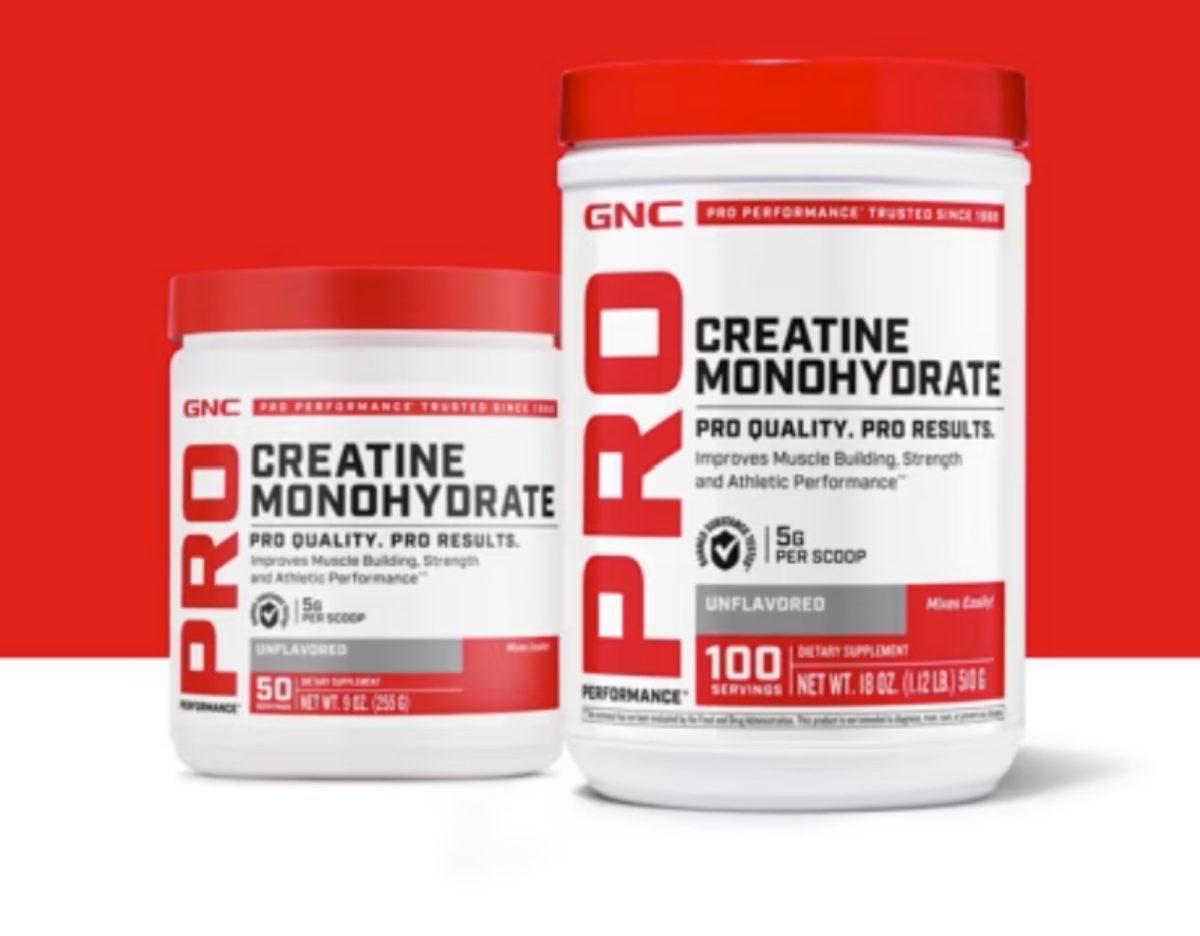Many athletes try to gain an edge on the competition by taking supplements such as protein powder and pre-workout, or changing their diet. Now, it’s all about creatine.
Creatine is a natural source of energy from red meat that helps muscles produce energy during a heavy lift or high-intensity workout. It is naturally produced in the liver, kidney, and pancreas, and is stored in our muscles and brain. It helps create a steady supply of energy so muscles can keep working, primarily when working out. Many people take extra supplements of creatine through either gummies, pills, or powder to gain weight and become stronger.
Creatine was first discovered in 1832 by a French Chemist Michel Eugene Chevreul. It began to gain popularity in the 1990s when experiments showed links to improved athletic performance. In 1996, it was estimated that over 80% of athletes at the Summer Olympics were using creatine, according to Physical Culture Study, which documents the history of fitness. Creatine has been subject to and extensive amount of research about muscle growth, but recently, more studies have focused on the effects on cognation and mood.
Creatine is not approved by the Food and Drug Administration. However it is classified as a dietary supplement under the Dietary Supplement Health and Education Act (DSHEA) of 1994.
The typical recommended dosage each day for a healthy adult is five grams. Addition, research done with more grams has proven to have positive benefits for sleep deprivation and improved mental cognition. However, creatine puts strain on the kidneys by temporarily raising the level creatine, and may lead to kidney disease. People who have kidney issues should never take creatine supplements.
Blayne Lapan, Williston’s Strength and Conditioning Coach, is aware of the physical benefits creatine is purported to have, but feels “what’s more interesting, is the brain health side of creatine.”
According to the National Library of Medicine, an experiment was conducted using creatine to test the positive effects on the brain and the result was nothing short of remarkable. The report presented significant positive effects on both working memory and intelligence, proving creatine influences brain performance.
Rees Combres, junior and varsity hockey player from Simsbury, Conn.,, sees multiple sides to taking creatine. He feels “it helped me get stronger and put on more muscle.” However he added “I felt bloated when I first started taking it.”
Cam Tabb, a second year senior from Wilbraham, Mass., believes creatine has helped him improve in the gym.
“I felt a difference with getting a couple extra reps and putting on extra muscle mass,” he said.
Owen Converse, a Williston Wildest Cat who does not take creatine because he hasn’t been consistent with it, says “I have some in my room but I haven’t found the right routine yet to start taking it.”





















